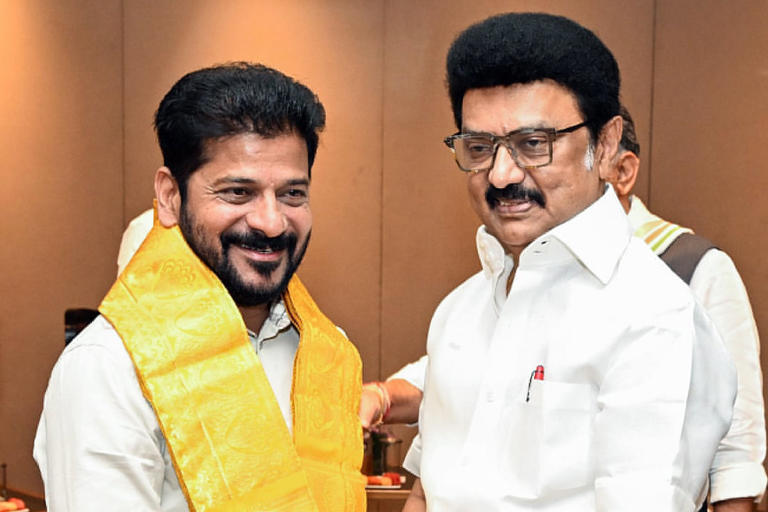Telangana CM Revanth Reddy Warns Delimitation on Population Basis Will Weaken South’s Political Power
Telangana CM Warns Against Delimitation Based on Population, Says It Will Politically Weaken the South
Hyderabad: Telangana Chief Minister A Revanth Reddy has strongly opposed the proposed delimitation of Lok Sabha constituencies based on population, stating that it would severely weaken the political representation of southern states. Addressing a crucial meeting convened by Tamil Nadu Chief Minister M K Stalin in Chennai, Reddy warned that if the NDA government at the Centre goes ahead with such an exercise, “North will make us secondary citizens.”
Reddy emphasized that states like Uttar Pradesh, Bihar, Madhya Pradesh, and Rajasthan would gain disproportionate power, leading to an imbalance in national politics. He categorically rejected any delimitation based on population, asserting that it is an attempt to impose a “demographic penalty” on the South. The Telangana CM underscored that while his state and other southern states deeply respect the unity of the country, they cannot accept a process that curtails their political influence.
Drawing from historical precedence, Reddy highlighted that former Prime Minister Indira Gandhi had executed delimitation without increasing Lok Sabha seats to maintain political balance among states. He also pointed out that the NDA government under Atal Bihari Vajpayee in 2001 had carried out a similar exercise without expanding the number of seats. He urged Prime Minister Narendra Modi to adopt the same approach, ensuring that the power dynamic between states remains intact.
Furthermore, Reddy dismissed the pro-rata formula as an alternative, arguing that it could still shift the political balance in favor of the northern states. He noted that even a single vote has previously determined the fate of Central governments, and any disproportionate delimitation could lead to significant political upheavals.
As a way forward, the Telangana CM proposed that Lok Sabha seats should not be increased for the next 25 years, and any delimitation should be carried out within states rather than at the national level. He advocated for redrawing boundaries of constituencies inside states based on the latest census, increasing representation for Scheduled Castes (SCs) and Scheduled Tribes (STs), and ensuring 33% women’s reservation in every state.
Reddy also called on the Centre to end what he described as the “discriminatory policy” against South India and Punjab. He argued that these regions have significantly contributed to nation-building over the last 50 years and deserve a fair share of political representation. Currently, the southern states hold 130 out of 543 Lok Sabha seats, roughly 24% of the total, and he demanded that this proportion be increased to 33% in any future delimitation.
Emphasizing the need for unity among southern states and Punjab, he urged leaders to set aside political differences and fight together against any move that would diminish their political strength. To escalate this movement, he announced that the Telangana Assembly would soon pass a resolution opposing delimitation based on population. He also encouraged other states to take similar steps.
Additionally, Reddy proposed that the next meeting of southern states and Punjab be held in Hyderabad, where further strategies would be discussed. He also pledged to organize a public rally to garner wider support for the cause, inviting all leaders to join the movement.
Reddy also raised concerns over financial allocations, highlighting the economic disparity between northern and southern states. He pointed out that Tamil Nadu receives only 26 paisa for every rupee it contributes in taxes, while Telangana gets back 42 paisa. In contrast, Bihar receives Rs 6.06 for every rupee it pays, Uttar Pradesh gets Rs 2.03, and Madhya Pradesh receives Rs 1.73. He argued that this imbalance further justifies the demand for greater representation and fair resource distribution.
The meeting on delimitation witnessed participation from various political leaders, including BRS Working President K T Rama Rao, who represented his party. The discussions focused on protecting the political interests of the South and ensuring a balanced representation in the Indian democratic system.
For more updates and in-depth analysis, stay tuned. For video news, visit our YouTube channel THE OLIGO.

